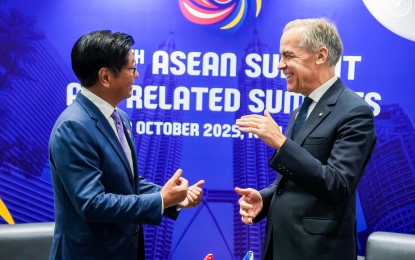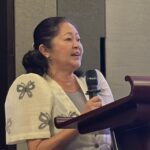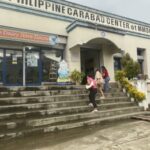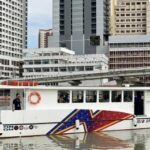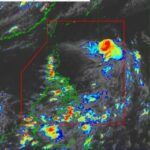KUALA LUMPUR, Malaysia – The Philippines and Canada are preparing to launch negotiations for a bilateral free trade agreement (FTA) and conclude talks by 2026.
President Ferdinand R. Marcos Jr. and Canadian Prime Minister Mark Carney reached the agreement during a bilateral meeting held on the sidelines of the 47th ASEAN Summit and Related Meetings.
The leaders announced their intention to imminently launch negotiations on a bilateral Canada-Philippines free trade agreement, with the goal of conclusion in 2026.
The two leaders discussed driving further growth in the Canada-Philippines economic relations, which supports over USD3 billion in trade, including in manufacturing products, defense, and both conventional and clean energy.
Canada’s new mission to double its non-United States exports in the next decade was also discussed.
The leaders agreed to accelerate negotiations on a Canada-ASEAN free trade agreement, with the intention to conclude negotiations in 2026 during the Philippines’ ASEAN chairmanship.
Both leaders welcomed the opportunity for a bilateral visit at the earliest opportunity and agreed to remain in close contact.
Canada and the Philippines have a strong and close relationship, supported by a Canadian-Filipino community of nearly one million people.
Carney is one of the six world leaders Marcos met for a bilateral meeting on the first day of the summit.
ASEAN Summit
The ASEAN Summit is the highest policy-making body of the Association of Southeast Asian Nations (ASEAN), a regional intergovernmental organization. It is a biannual meeting where the heads of state or government from the ten member countries convene to discuss and set policy on economic, political, security, and socio-cultural cooperation. The first summit was held in Bali, Indonesia, in 1976, following ASEAN’s founding in 1967 by five original members.
Kuala Lumpur
Kuala Lumpur is the capital and largest city of Malaysia, founded in the 1850s as a tin-mining settlement at the confluence of the Klang and Gombak rivers. It has since grown into a vibrant, modern metropolis, renowned for its iconic skyline dominated by the Petronas Twin Towers. The city reflects a blend of Malay, Chinese, and Indian influences, visible in its architecture, cuisine, and diverse cultural festivals.
Malaysia
Malaysia is a Southeast Asian nation with a rich history shaped by indigenous cultures, centuries of trade, and successive influences from Indian kingdoms, Islamic sultanates, and European colonial powers, notably the Portuguese, Dutch, and British. It gained independence in 1957 and is known today for its vibrant multicultural society, comprising Malay, Chinese, and Indian communities. The country is famous for its diverse attractions, including the modern skyline of Kuala Lumpur, pristine beaches, and ancient rainforests.
Philippines
The Philippines is a Southeast Asian archipelago nation with a rich history shaped by centuries of Spanish colonization, followed by American rule. Its culture is a vibrant fusion of indigenous Malay traditions with strong Hispanic Catholic influences and American elements. This unique heritage is evident in its historic cities, colorful festivals, and its status as one of the largest Catholic countries in Asia.
Canada
Canada is a vast North American country with a rich history shaped by Indigenous peoples for millennia, followed by European colonization starting in the 15th century, primarily by the French and British. It is a bilingual federation known for its cultural diversity, stunning natural landscapes, and its evolution into an independent constitutional monarchy.
United States
The United States is a relatively young nation founded in 1776 after declaring independence from Great Britain. It grew from thirteen original colonies into a global superpower, shaped by waves of immigration, a civil war, and a democratic constitution. Its diverse culture is a product of its history as a land of indigenous peoples, European settlers, and enslaved Africans.
ASEAN
ASEAN (Association of Southeast Asian Nations) is a regional intergovernmental organization established on August 8, 1967, in Bangkok, Thailand, by its five founding members. Its primary aim was to promote political and economic cooperation, as well as regional stability, during a period of conflict in Southeast Asia. Today, it has grown to include ten member states and is a major economic bloc and a central forum for regional dialogue.
Canadian-Filipino community
The Canadian-Filipino community is one of the largest and fastest-growing cultural groups in Canada, with a significant wave of migration beginning in the 1970s. This vibrant community has established strong cultural hubs in major cities like Toronto, Vancouver, and Winnipeg, where they have preserved their heritage through festivals, cuisine, and community organizations.

